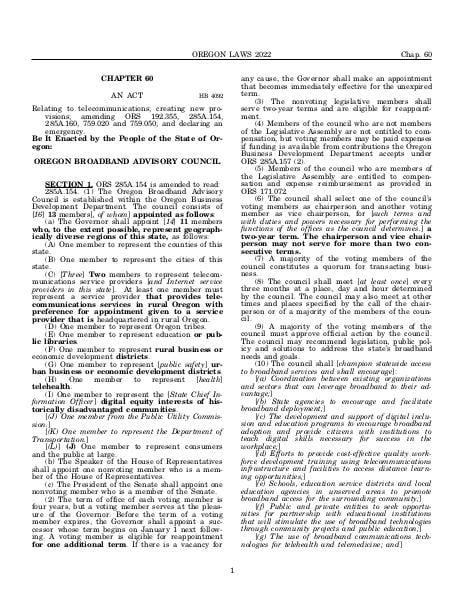Public records exempt from disclosure
More info
Public Records Request Information
“To submit a public records request, you may do either of the following…”
Bibliographic info
Source:
Section 192.355 — Public records exempt from disclosure, https://www.oregonlegislature.gov/bills_laws/ors/ors192.html.
Notes of Decisions
Where vehicle registrant asked Motor Vehicles Division not to reveal address to public and took other steps to assure privacy, she brought address within “information of personal nature” proviso of this section. Jordan v. MVD, 93 Or App 651, 763 P2d 420 (1988), aff’d 308 Or 433, 781 P2d 1203 (1989)
Where plaintiff brought civil rights action against police chief and police officers to recover for use of excessive force during arrest and moved to compel discovery, documents about psychological or psychiatric referral, evaluation or treatment of police officers for past incidents of violence or arrest were not privileged under this statute. Mueller v. Walker, 124 FRD 654 (D. Or. 1989)
Where public body’s only basis for claiming records are exempt from disclosure as confidential is contract whereby it agreed to keep them confidential, it did not make other required showings under this section for exception. AA Ambulance Co., Inc. v. Multnomah County, 102 Or App 398, 794 P2d 813 (1990)
Five-part test for determining whether information supplied to agency in confidence is exempt from disclosure is whether: 1) information was submitted voluntarily; 2) agency can show that nature of information is such that information should be kept confidential; 3) agency has undertaken good faith obligation to maintain confidentiality; 4) disclosure might harm public interest; and 5) information was actually submitted in confidence. Gray v. Salem-Keizer School District, 139 Or App 556, 912 P2d 938 (1996), Sup Ct review denied
Conditional prohibition on public disclosure of personnel files does not exempt files from discovery under federal rules. Brown v. State of Oregon, Dept. of Corrections, 173 FRD 262 (D. Or. 1997)
Option of invoking or waiving confidentiality of personnel record belongs to agency possessing record, not to individual who is subject of record. Oregonian Publishing v. Portland School District No. 1J, 152 Or App 135, 952 P2d 66 (1998), aff’d on other grounds, 329 Or 393, 987 P2d 480 (1999)
Investigatory report that is not specific to employment of individual employee is not part of personnel file and therefore is subject to disclosure. Oregonian Publishing v. Portland School District No. 1J, 329 Or 393, 987 P2d 480 (1999)
Whether identity of complainant falsely reporting violation of Oregon Safe Employment Act (ORS 654.001 to 654.295) is subject to disclosure depends on complainant’s good or bad faith in making complaint. Hood Technology Corp. v. Oregon Occupational Safety and Health Division, 168 Or App 293, 7 P3d 564 (2000)
Requirement for showing that public interest weighs against disclosure in “particular instance” prevents categorical disclosure exemption for advisory communications within public body or between public bodies. Kluge v. Oregon State Bar, 172 Or App 452, 19 P3d 938 (2001)
Oregon Health and Science University records or information is “not customarily provided to business competitors” if not ordinarily provided to business competitors of university or of its business partners. In Defense of Animals v. OHSU, 199 Or App 160, 112 P3d 336 (2005)
Where plaintiff pharmaceutical company and defendant entered into confidentiality agreements, defendant is limited only from disclosing product that plaintiff itself produced and not contractually obligated to protect its own work product under public records request, even if defendant’s work product includes some of plaintiff’s work product. Pfizer Inc. v. Department of Justice, 254 Or App 144, 294 P3d 496 (2012)
When read together with [former] ORS 192.505, this section exempts from disclosure only information in contract between municipal utility and biomass energy producer for purchase of biomass-generated energy that is sensitive business, commercial or financial information and disclosure of information would cause competitive disadvantage for municipal utility or retail electricity customers, but does not exempt from disclosure entire contract. Brown v. Guard Publishing Company, 267 Or App 552, 341 P3d 145 (2014)
Although attorney-client privileged documents that also are public records are generally exempt from disclosure, such documents older than 25 years are required to be disclosed. City of Portland v. Bartlett, 304 Or App 580, 468 P3d 980 (2020), Sup Ct review allowed
Bill-drafting-request communications made between state agencies and Legislative Counsel before and during bill-drafting process are exempt from disclosure under lawyer-client privilege. Chaimov v. Dept. of Admin. Services, 314 Or App 253, 498 P3d 830 (2021), Sup Ct review allowed
